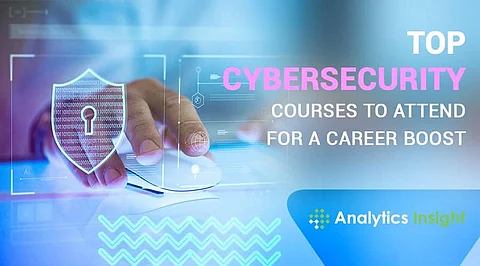

Technological, corporate, political, military, economic, and medical institutions collect, store and process an extraordinary level of data on a daily basis, much of which is highly sensitive and requires constant security. It is the process of protecting systems, networks, and applications from cyber threats, harm, and unwanted access. Let's get down to the top 10 cybersecurity courses you should go for in 2022.
Hacking technology, the latest flaws, information security regulations, and standards are all covered in this certification. Students are put in realistic situations, taught hacking strategies, and then shown how to check for hacking and protect their systems. Security experts, site administrators, and anybody interested in network security will profit from this course. This credential provides you a leg up on the competition for vulnerability scanning jobs.
It is a prime certification for IT professionals who are responsible for developing the best organisational security practices in enterprise-level systems. A candidate must have five years of documented cybersecurity experience to be considered for this position. This qualification can, however, be met with a mix of education and experience. The CISM is effective for 3 years and requires an annual maintenance fee from credential holders.
For people who are new to cybersecurity, it is a basic level certification. It will take two years to finish. The following IT fundamentals are covered:
Many IT companies regard this certification to be a must-have for network security. It's a vendor-agnostic certification that may be utilised in a variety of scenarios. This certification demands 3–5 years of previous experience and once attained, it is one of the most valuable knowledge assets you may possess. The following domains are covered:
5 years of work experience are required for this certification. It's an entry-level certification for security experts who want to work in a 'hands-on' role. Wireless assaults, access controls, identification, password protection, DNS, cryptography principles, ICMP, IPv6, important public infrastructure, Linux, network mappings, and network protocols are all covered by GSEC certified professionals. This certification must be renewed every 4 years, along with the payment of a certification monthly charge, which must be paid every four years as well.
This credential is similar to the CEH credential. This certification will teach you how to use hacking tools and the most up-to-date technologies. Information security tester, network server administrator, firewall administrator, risk assessment professional, system administrator, and others can benefit from this qualification.
It's a certification for people whose employment entails examining target networks and identifying security flaws. This certification covers the following topics:
This certification verifies that you have the sophisticated technical skills needed to implement, manage, and administer IT infrastructure utilising industry-standard security methods, procedures, and policies. IT admins, managers, directors, and network security experts, even those in the following places, will benefit from this certification:
It's an operational risk management certification for professionals who want to expand their IT, operational risks, and business solutions control knowledge and experience. CRISC is among the first certifications to assist IT professionals in preparing for real-world dangers. It provides greater value to companies and clients in terms of risk assessment and management, as well as ongoing learning and up-to-date information. Individuals whose job duties include the following roles are eligible for CRISC certification:
Information auditing is the emphasis of this certification. CISA certified individuals have a lot of auditing expertise and know-how to deal with security flaws. It, too, necessitates a minimum of five years of prior experience. The following domains are covered:
Join our WhatsApp Channel to get the latest news, exclusives and videos on WhatsApp
_____________
Disclaimer: Analytics Insight does not provide financial advice or guidance. Also note that the cryptocurrencies mentioned/listed on the website could potentially be scams, i.e. designed to induce you to invest financial resources that may be lost forever and not be recoverable once investments are made. You are responsible for conducting your own research (DYOR) before making any investments. Read more here.
